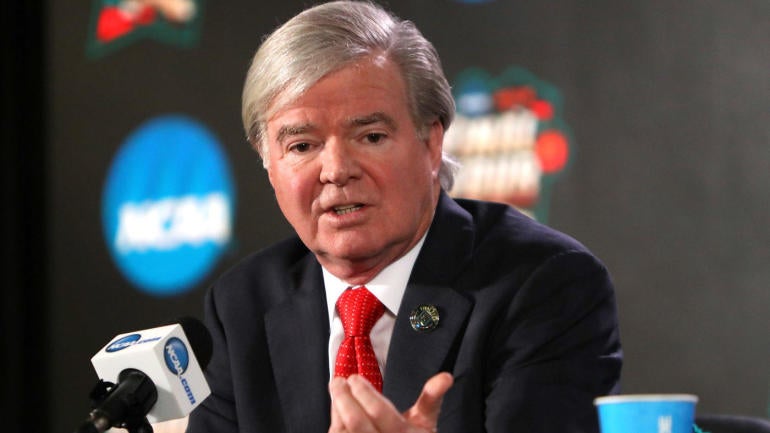
With a recent Supreme Court ruling challenging the NCAA's authority to regulate benefits for athletes on the books, athletes now allowed to profit off their platforms and also allowed to transfer more freely than ever before, the NCAA has been knocked on its heels in recent months. Now, the NCAA seems to be acknowledging the obvious as its president, Mark Emmert, admitted Thursday that the organization's role should be potentially decreased.
Emmert told reporters the NCAA's mission ought to be reconsidered and reduced. Without promoting the specifics of a new model for the organization, he conceded that the governance of college sports is at a crossroads and should perhaps become more decentralized with more power shifting to schools, conferences and individual sports.
"When you have an environment like that it just forces us to think more about what constraints should be put in place ever on college athletes. And it should be the bare minimum," Emmert said, according to The Associated Press.
The NCAA approved a temporary policy last month permitting athletes to profit off their name, image and likeness. But that only came after its efforts to lobby Congress for help in making a national NIL rule failed and left the organization scrambling amid a flurry of state laws. The Supreme Court also ruled last month that the NCAA may not put a cap on the amount of education-oriented benefits that athletes receive.
The developments come as the College Football Playoff continues to rise in power within the collegiate sports landscape as it oversees the likely future expansion of college football's postseason, which should include a fresh windfall of TV rights cash.
"This is a real propitious moment to sit back and look at a lot of the core assumptions and say, 'If we were going to build college sports again in 2020 instead of 1920, what would that look like?' " Emmert said, according to the AP. Emmert received a contract extension in April that will keep him in the role through 2025.
















